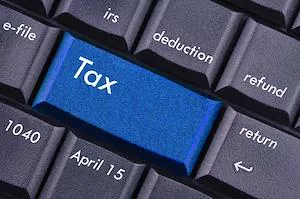One of the parts of the Tax Reform Bill introduced by the Federal Government that was substantially changed during its debate in Congress was the text related to Federal Excise Taxes. Most of these modifications were proposed because of their impact on specific regional industries.

The Tax Reform Act (Law No. 27,430), published on the Official Gazette on December 29, 2017, changed many provisions related to Federal Excise Taxes on some goods. The tax reform has some major issues in connection with federal excise tax reform, specially focused on the deterrent effect this tax has on certain goods’ consumption and the simplification and update of the wording of the law. Congress passed the bill with several amendments.
a) Insurance policies
One of the most important changes introduced is the inclusion of insurance policies as a taxable service within the framework of Law No 24,674 -rather than its former regulation under Law No 3,764-. The applicable tax rate to domestically-issued insurance policies was reduced and the payment of the tax applicable to insurance policies issued by foreign insurance companies was regulated.
b) Automobiles
The reform consolidated the rules on both diesel and non-diesel automotives related to the excise tax applicable under Chapter IX of Law No 24,674.
c) Drinks, beverages and beer.
The bill introduced proposed to raise the applicable excise tax rates to alcoholic and sugary drinks (except wines and champagnes) on the grounds on the negative impact these beverages have on people’s health. The applicable nominal rate for most alcoholic beverages was finally increased from 20% to 26%, rather than the 29% originally proposed.
The tax hike proposed for sugary non-alcoholic beverages did not pass the congressional debate, as the only change approved was setting a specific tax rate on energy drinks of 10%.
A higher tax rate on beer sales was introduced by Congress, even though the bill originally introduced by the Federal Government had not done so. Congress set a tax hike for beer sales from 8% to 14%, except for craft beer sold by breweries considered SMEs.
d) Tobacco
The most ambitious modification made was the wide overhaul on excise taxes applicable to tobacco products. Higher applicable nominal tax rates, minimum and maximum payments of these taxes were approved. New specific regulations about the correct identification of tobacco products commercialized and even a special import restriction for certain inputs used in the tobacco industry have been approved.
e) Tech products and cell phone services
The bill passed gradually reduces the applicable excise tax levied on tech products -except those manufactured in Tierra del Fuego- until 2023, when the applicable rate would reach 0%. This excise tax would still be provided for in Law No 3,764 rather than the general Federal Excise Tax Law No 24,674.
Lastly, the reforms also included a tax hike for cell phone services (4% to 5%) to compensate the elimination of the specific 1% excise tax then levied on cell phone services destined to government-funded high-performance sports programs.
The amendments inserted by this new piece of legislation on Federal Excise Taxes are applicable starting March 1, 2018. Some aspects featured in this reform must be further regulated in order to become fully applicable.
This insight is a brief comment on legal news in Argentina; it does not purport to be an exhaustive analysis or to provide legal advice.